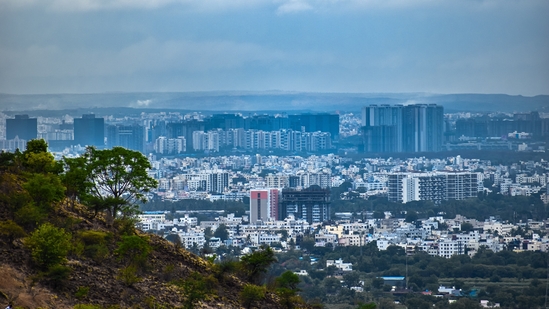SC to examine Lokpal’s powers over HC judges
This principle was derived from the need to uphold judicial independence while ensuring accountability.
Do high court judges come under the purview of India’s anti-corruption ombudsman for “public servants”, the Lokpal? That’s the important question the Supreme Court will take up Thursday, when it considers a reference arising from the Lokpal’s decision to entertain two complaints against a sitting high court judge accused of influencing an additional district judge and another high court judge in a pending case.

A three-judge bench comprising justices Bhushan R Gavai, Surya Kant and Abhay S Oka will hear the matter picked as a suo motu (initiated on its own motion) case emanating from the Lokpal’s January 27 decision that made a crucial pronouncement regarding the applicability of the Lokpal and Lokayuktas Act, 2013, to high court judges.
“We make it amply clear that by this order, we have decided a singular issue finally - -as to whether the judges of the high court established by an Act of Parliament come within the ambit of Section 14 of the Act of 2013, in the affirmative. No more and no less. In that, we have not looked into or examined the merits of the allegations at all,” the Lokpal’s order stated.
The Lokpal bench, headed by justice AM Khanwilkar – a retired Supreme Court judge, declared that a high court judge falls within the definition of a “public servant” under the 2013 Act. It observed that the Act does not explicitly exclude judges from its ambit. However, despite affirming its jurisdiction, the Lokpal opted to seek guidance from the Chief Justice of India (CJI) before proceeding further and deferred action on the complaints.
“Awaiting the guidance of the Hon’ble the Chief Justice of India, consideration of these complaints, for the time being, is deferred until four weeks from today, keeping in mind the statutory time frame to dispose of the complaint in terms of Section 20(4) of the Act of 2013,” the Lokpal stated. In its public order, the Lokpal redacted the name of the judge and the concerned high court.
The Supreme Court’s intervention brings into focus the landmark judgment in K Veeraswami Vs Union of India (1991), where a constitution bench held that a judge of the Supreme Court or a high court is a “public servant” under the Prevention of Corruption Act, 1988. However, the ruling laid down a crucial safeguard –– no investigation against a judge can proceed without prior sanction from the CJI.
This principle was derived from the need to uphold judicial independence while ensuring accountability. The top court emphasised that judges are not immune from criminal liability but must be protected from frivolous or politically motivated accusations that could undermine judicial integrity.
Lokpal had revived two complaints by the same person against the sitting additional judge of the high court concerned, alleging that the judge had influenced an additional district judge and a judge of the same high court who had to deal with the suit filed against the complainant by a private company. The high court judge in question allegedly wanted to favour the company. The complaint claimed that the private company was earlier a client of the high court judge when the latter practised as a lawyer. The Lokpal order, however, masked the names of the high court judge as well as the high court concerned.






